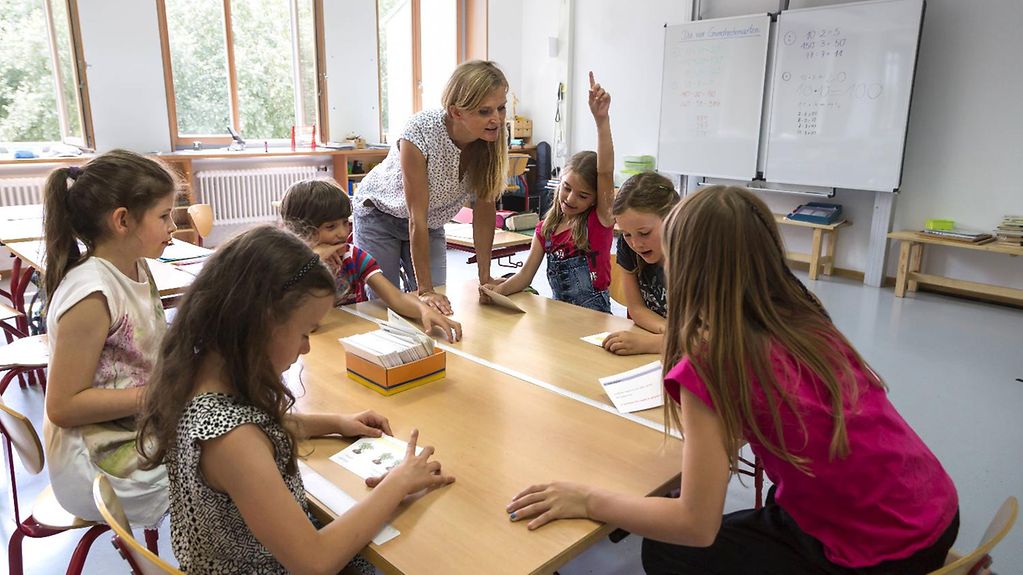Extending all-day primary schools - FAQs
All-day school and daycare services make primary school children stronger, and help parents reconcile their family and professional commitments. The German government is thus pushing ahead with the expansion of all-day services, and has earmarked a total of 3.5 billion euros for this. The Cabinet has now put in place the preconditions for providing financial assistance to the individual federal states.
3 min reading time

About half of all primary school children already use all-day services, but the government assumes that demand is much higher.
Photo: imago/Westend61
What exactly is the German government planning?
In the Coalition Agreement, the governing parties agreed on a legal entitlement to all-day care for primary school-age children as of 2025. To prepare for this, efforts must be made at local level to swiftly put in place the necessary infrastructure. Over the last year, the German government, under the aegis of Federal Family Affairs Minister Franziska Giffey, has identified and fleshed out four main parameters. The aim is to offer eight hours of schooling and daycare services five days a week, including reliable lunch and the opportunity to sign up for daycare services during school holidays.
How is the extension of services to be financed?
To extend reliable, needs-driven education and daycare services, the German government proposed financial assistance for the federal states totalling one billion euros a year in 2020 and 2021, i.e. total assistance of two billion euros.
When the government was drawing up an extensive economic stimulus and crisis management package in response to the COVID-19 pandemic, it was decided to allocate additional federal funding of up to 1.5 billion euros for the extension of all-day services. The additional funding is to be provided under the Second Supplementary Budget Act to finance the COVID-19 assistance measures.
The German government is thus providing a total of 3.5 billion euros to extend all-day services at primary schools. This financial assistance will be provided to the federal states by means of what is known as a special federal government fund. For the two billion euros first allocated, work had already started on creating a special fund of this sort. Now the Cabinet has decided that additional 1.5 billion euros can be allocated to top up the fund.
How high is demand for all-day care in Germany?
About half of all primary school children already use all-day services, but the Federal Family Affairs Minister believes that demand is much higher, at about 75 or 80 per cent. This gap is now to be closed. According to Franziska Giffey, it has become clear during the COVID-19 pandemic in particular, just how important it is to offer daycare in the afternoon as well. With its commitment to all-day care, the German government wants to enable parents to reconcile their family and professional commitments.
What can the funds be used for?
The federal states can use the first 750 million euros this year for planning and development costs. The project is to speed up the creation of all-day places for more children. Federal Education Minister Anja Karliczek stressed, "I believe it is important that we not only create more places, but that attractive, high-quality care is available with individual attention for children." It is also, however, possible to use funding to invest in hygienic measures or to procure games and sporting equipment to fit out facilities.
Why is all-day care important?
The German government believes it is important to develop all-day services at primary schools. All-day education and care services make it possible to give primary school children more individual attention and help give children from socially disadvantaged backgrounds in particular better opportunities. The services also make it easier for parents to reconcile their family and professional commitments.